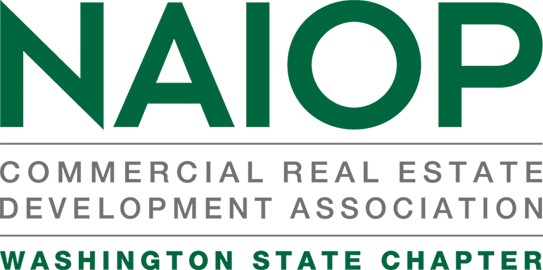Sustainability Interview: Matt Elley, AMLI Residential

AMLI Residential is a market leader in sustainability whose projects include over 44 LEED and 42 Energy Star certifications and was named 2020’s LEED Outstanding Developer of the year. This spring the NAIOPWA Sustainable Development Committee sat down with Matt Elley of AMLI Residential to get his thoughts on the current market in terms of sustainability and what the future could and should bring for multi-family development.
Matt believes that to rise to the top of a very competitive market, while setting and reaching high sustainability goals, it’s critical that AMLI Residential approaches sustainability from the ground up. Buy-in at all levels from the developers and operators to the investor group (AMLI is owned by Morgan Stanley’s Prime Property Fund) has been critical to the company’s success. Once the building has been delivered, AMLI has ongoing training protocols to ensure that the properties are operated in an ongoing sustainable manner.
On each project AMLI develops, the stage is set early in design with very targeted goal minimums and a ‘gloves off’ approach to stoke creativity among the design team to allow them to suggest ways to raise the bar. AMLI doesn’t want to just simply be beholden to the structure of required points if there is a smarter and better way to do things. Some of the areas where they have gone beyond are: providing pollinator gardens at sidewalks, pushing for more electric vehicle charging capacity, providing used electronics recycling stations, using effective signage to guide recycling/waste processing and encourage stair usage, and providing transit hubs in lobbies that promote the use of transit. Having a highly walkable/bikeable location to work and play is paramount, as it reduces hydrocarbon use in resident mobility.
When asked about challenging green policies at the local and state level, Matt had the following to say: “It seems the energy code has pushed the envelope and conditioning systems as far as they can practically go for the near-mid term, and we are only now trying to make them work in a cost-challenged market. In conjunction with these requirements of private developers, it seems fair to ask our utilities, Seattle City Light and Puget Sound Energy, to develop more alternative wind/solar systems within the State. These alternates are under 5% of our energy supply currently and have a long way to go rise above 40%. If the building industry is being limited to electricity in buildings, the source of this electricity locally should have similarly aligned goals.”
So what’s on the sustainability horizon for AMLI? As updated code cycles demand expensive conditioning, water-heating systems, and envelope/make up air systems, the firm searches for additional ways to raise the bar. For AMLI this will mean continuing to think about simple common-sense concepts that have struggled to find a foothold in multifamily development. Examples are infrastructure for onsite battery storage, passive climate control, and continued focus on site location and the promotion and accommodation of mobility that doesn’t require a single occupant vehicle.
Private developers have jumped in with both feet over the last decade, but it is not a battle that can be won solely on their shoulders. One of the biggest challenges we will face is how to put systems in place at infrastructure scale. As energy codes tighten and sustainability goals continue to increase, buildings are being designed as lean as ever. We are nearing a practical maximum efficiency with the technologies currently available. A big focus moving forward will be advocacy for leadership at the regional level to ensure that the infrastructure, storage, etc. are available as these innovative projects come online. Continued advancement of jurisdictional code incentives, online calculators, and other tools will be critical to systematizing the decision making related to sustainable design.
In closing, Matt was excited to keep up the relentless pursuit of pushing our built environment toward a sustainable future. The industry mindset in Seattle is so progressive in this space that it allows for an ecosystem of players who are always looking for the next improvement and have the capacity to execute. AMLI’s developments have benefited from this synergistic environment locally and that high bar has even inspired practices in our other markets. Stay green. Future generations depend on it!
This blog was written by Aaron Fjelstad (Coughlin Porter Lundeen) and Johnson Jones (Coffman Engineers) as part of an interview series by our Sustainable Development Committee in conjunction with their ongoing Sustainability Mindset series. For more information on our Sustainable Development Committee, click here.
If you’d like to be interviewed for a future post, please email [email protected].
